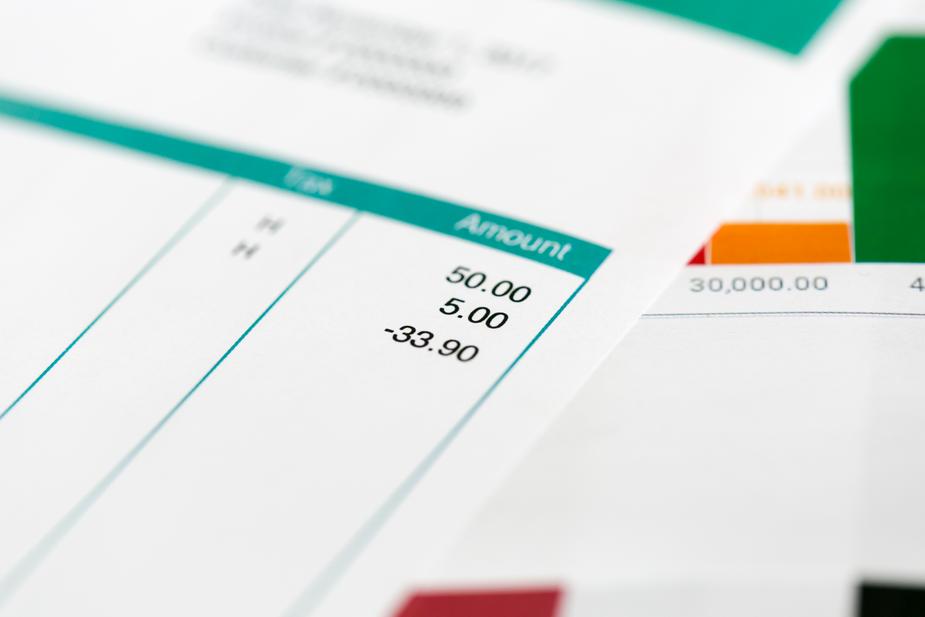Welcome to Ask Shopify, a series where ecommerce experts tackle real questions and challenges from store owners who are trying to launch, build, and scale their stores. We’re here to help with every aspect of your store, from marketing to HR to accounting.
Who’s we? We’re the ecommerce experts both inside and outside of Shopify. Between our team, who spend all day immersed in the world of ecommerce (and who sometimes run stores themselves!) our squad of Shopify Experts, and our amazing customers, we have access to world-class expertise—and now you do too. So let’s dig in and get to your questions, because they’re good ones.
Question:
"I’d like to know how to do ecommerce bookkeeping from a daily, monthly, quarterly, and yearly perspective. I’m new to it all and can not afford to pay someone else. But if I could understand the process, I could do it, no problem."
Answer:
Understanding andtracking your business’ financialsis an essential part of owning a business. That’s why bookkeeping is something that you either have to learn or outsource when you’re running a business.
Luckily, not only is it possible to learn how to manage your own books, there are a few notable benefits to tackling it yourself.
We spoke with two experts to help you get a handle on managing your finances on your own: Charlie Ashbourne, an internal accountant here at Shopify who has worked with entrepreneurs on their accounting in the past, and Sheena Brady, a merchant success manager for Shopify Plus who also runs a successful business,Tease Tea—and has built a system to manage the books for her business.
At the highest level, they recommended a few things that you can do on a daily, weekly, and monthly basis to keep your books in tip-top shape.
What should you do daily?
On a daily basis, the one thing that needs to be on your mind is receipts.
Keep a paper trail for anything that happens in your business, which might mean keeping the receipt from your coffee meeting with a new supplier, or bookmarking the email receipt for your latest round of digital ads.
它是如此重要的原因让这些记录is simple. To get the full tax benefit of claiming legitimate business expenses, you need to be able to support them.
“If you don't have adequate support, you can be denied both tax credits and deductible expenses, which if you're actually entitled to them can be a big hit at tax time,” says Charlie.
So your daily bookkeeping task is to make sure that you’ve got a plan to keep track of receipts, invoices, and relevant emails. You want these documents to be easily accessible so working with them doesn’t require significant time or effort.
For receipts and invoices, you could set up a specific folder you put them into in your office. When it comes to emails, if you tend to get them from specific senders (your software providers, digital ads, and the like) you could set up a simple rule in your inbox to funnel them all into a folder called “Receipts and Invoices”.
You could even create a simple to-do list item to handle this process, which is what Sheena has done for Tease Teas.
“Anytime an invoice or receipt is emailed to us—95% are these days—I upload the attachment to Google Drive, into a invoice folder broken down by month. This means I rarely ever have to print, file or store any of this information which in itself saves a lot of time.”

What should you do weekly?
Bookkeeping shouldn’t balloon into a huge weekly task on your to-do list. There are two key things you should be keeping an eye on every week: your cash flow and your variable expenses, especially when they’re brand-new.
注意你的现金flow
Do you have money in the bank, how much, and what does that money need to cover? That’s what you’re looking at when it comes to cash flow.
“Aside from revenue and expenses, the key thing is managing your cash and your cash flow. There's usually a misconception that if you have revenue of X amount, then you have cash of that amount just sitting there, but that's not necessarily the case,” says Charlie.
On a day-to-day basis, you might need to make decisions about when to buy something, or how much to spend on your business. Understanding how much cash you have on hand, and what else that cash needs to cover, is a key part of managing your books and your business.
Keep an eye on new or variable expenses
Most of the time, watching and reviewing your expenses can be a monthly task. But if you have any new expenses, or variable expenses, you’ll want to keep a closer eye on them to make sure they’re aligned with expectations.
“Take marketing expenses for example: if you’ve recently allocated budget to run paid ads, and it fluctuates day by day, you should keep a closer eye on it until you’re comfortable with the behaviour,” advised Charlie.
After all, if there are ways to evaluate new initiatives and expenses before the end of the month, you can make faster but still-informed decisions.

What should you do monthly?
If you’re working with a bookkeeper, you’d probably be in touch with them on a monthly basis to check on your books. As a DIY-er, you should make a plan to sit down and commit some time on a monthly basis to keeping your books in order.
Get a business snapshot
On a monthly basis, you should be looking at your business as a whole, to understand how things are going and get a feel for the bigger picture.
“At the end of the month, you want to make sure you’ve got all of your expenses in, and then look at your sales, your expenses, your income, and your cash position as a whole. You also want to make sure to look at any key areas of the business that you're interested in,” says Charlie.
This review is a good time to keep an eye on trends you’re seeing from month to month, and think about how you’ll handle the upcoming month from a financial perspective. You can also pay special attention to any new projects, campaigns, or operational changes, to see if you’re noticing it impacting your sales, your expenses, or both.
Keep an eye on expenses
Aside from something you need to keep records for daily, and check in on weekly, your monthly review is a good time to think more strategically about how expenses fit into your business.
“I always look at expenses deeply, even when we’re performing well in sales. A large success indicator in business is profitability, and you can often create unexpected profit by analyzing your expenses and creatively finding ways to lower them,” says Sheena.
“Last year, I looked at a popular tea accessory we sell and did some research. I asked our supplier if there was room for a discount based on our history and my knowledge of the manufacturer. He was able to lower our cost per unit, and we saved over $5,000 last year alone on this one ask.”
Stay organized
If there’s one cliché every entrepreneur who isn’t secretly an accountant can identify with, it’s the “shoebox full of receipts.” The dream, of course, is to hand that shoebox off to an accountant or bookkeeper who can make sense of it all, but there are ways you can tackle the shoebox all on your own.
During your monthly review, go through all of your stored receipts in your email, your Google Drive file, or yes, your shoebox. Sort them into expense categories, both to keep yourself organized for tax season, and to get a look at how much you’re really spending on inventory orders versus advertising.
Further Reading:8 Small Business Accounting Tools to Help You Manage Your Finances
Adjust based on what you need to know
No two businesses are the same, and while there are fundamentals that are true for every business, your unique mix of revenue and expenses may lead to a slightly different set of bookkeeping needs than others.
“I used to review my books based on orders. Every order that came in, I'd ensure it was logged and tracked with bookkeeping software. It turns out, this wasn't necessary. For our business, all that mattered for our reviews were overall sales by month,” says Sheena.
If you’re recording everything you need for tax purposes, and you’re getting the information you need to make strategic decisions about your business, you can opt to streamline processes that aren’t critical to either of those things.
Understanding your books is good business
Whether you manage your books yourself or decide it’s best to hire a bookkeeper, understanding how money flows through your business is good business.
“Having proper data and knowing where you are, what seems to be driving your revenue, and where you might be able to trim some costs is critical. Having solid decision-making data puts you in a better spot to succeed in the future,” says Charlie.
As a do-it-yourself bookkeeper, you have firsthand knowledge and access to all the numbers, which puts you in a powerful place to make informed decisions about next steps. And while there’s value in getting expert help and advice about your books, make sure you never lose the solid understanding of your numbers, no matter who you have managing the day-to-day.

